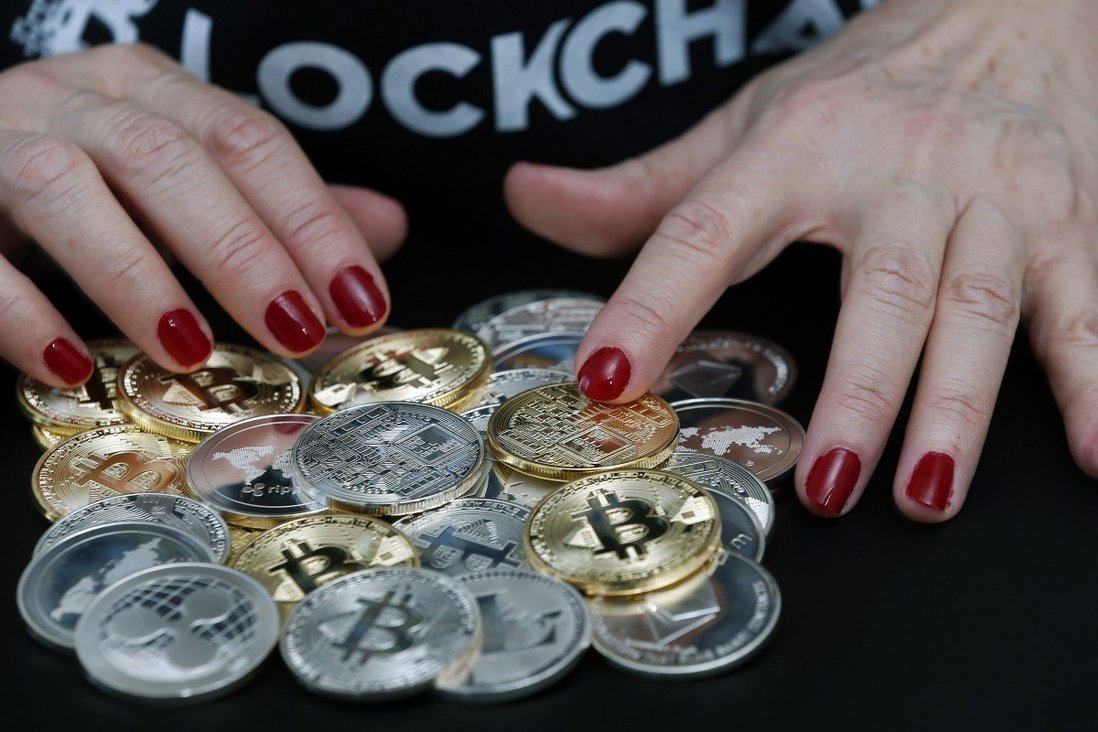The government’s proposal to regulate cryptocurrency exchanges could leave ATMs as one of the last remaining avenues for retail investing.

The price of bitcoin soars to historic highs, hitting US$24,000 on Wednesday after tripling this year.
As Hong Kong’s financial regulators tighten their scrutiny of cryptocurrencies, the machines that dispense bitcoin and other digital tokens may soon be among the last remaining avenues for individual retail traders.
A broader set of rules currently being considered would subject the city’s virtual currency exchange platforms to licensing requirements by the Securities and Futures Commission, and forbid them from servicing retail investors.
But the bitcoin automatic teller machines (ATMs) could also eventually find themselves off limits if an appeal from the cryptocurrency community for the government to exclude them from the extended regulations designed to tackle money laundering goes unheeded.
There are roughly 60 bitcoin automatic teller machines (ATMs) across the city where users can buy and sell bitcoin and other digital currencies. Located in shopping malls and commercial buildings, they provide a convenient way for members of the public to trade bitcoin, or transfer cryptocurrencies to other users.
The price of bitcoin has soared to historic highs, hitting US$24,000 on Wednesday after tripling this year.
In a November consultation, the Financial Services and Treasury Bureau proposed widening the scope of the city’s anti-money-laundering and counterterrorist financing ordinance to include cryptocurrency exchanges.
The ATMs may also face more rules, as the government stated in the consultation paper that it will consider regulating them “when the market is ready”.
The prospect of the city’s financial regulator expanding its oversight of bitcoin has created uncertainties for start-ups and their blockchain-related investments, said Leo Weese, co-founder of the Bitcoin Association of Hong Kong, which is preparing a submission to the consultation.
“To restrict retail individuals from accessing bitcoin would be overshooting the government’s goals of promoting innovation, and financial inclusion,” said Weese. “Cryptocurrency assets that are considered virtual commodities are already regulated by the Customs & Excise Department.”
The Hong Kong Monetary Authority (HKMA) has said that bitcoin and other cryptocurrencies are not legal tender but are virtual commodities. Bitcoin does not qualify as a means of payment as it does not have any backing from an issuer, or a physical form. Hence, bitcoin does not come under the HKMA’s purview.
But cryptocurrencies could heighten the risks of money laundering and terrorist financing because of the greater anonymity associated with their transactions. For example, in 2019 a panel monitoring United Nations sanctions revealed that North Korea had been hacking various digital currency exchanges to steal tokens estimated to be worth US$2 billion, to fund the country’s development of weapons of mass destruction.
Also, as the cryptocurrency economy has developed to a meaningful size, previous incidences of fraud and misconduct inevitably mean that it will become increasingly regulated, said Gaven Cheong, a partner at law firm Simmons & Simmons.
“I’d expect that cryptocurrency payment systems like ATMs would likely be subject to anti-money-laundering and terrorist financing obligations under the city’s payment system ordinance in the future, said Cheong.
To be sure, there are already technologies available that can help companies know who their customers are. Hong Kong start-up ixFintech has just launched a pilot digital asset exchange machine at Cyberport, where its headquarters is based, that can convert Hong Kong dollars into bitcoin and ethereum.
Using technologies such as cryptocurrency-wallet public address tracking, the machine operator can detect whether the source of funds was previously linked to illicit or nefarious activities, said founder and chief executive Irene Wong.
“As an operator of the ATM, we want to deal with the anti-money-laundering issue upfront,” she said.
The scope of companies that accept payment in digital currencies is evolving, and that is blurring how regulators have defined them. Some, like home furnishing chain Pricerite, see some merit in regulations.
The company has since August 2019 been accepting bitcoin, ethereum and litecoin as a means of payment through its partnership with the mobile payment provider QFPay.
But daily spending using cryptocurrency is still not popular, said James Leung, chief executive of Pricerite.
“We believe that a proper [regulatory framework] would give people more confidence to use them when they think cryptocurrencies are also a secure means of payment,” he said.















